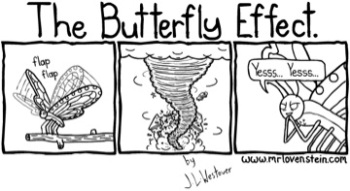As an English-learner, vocabulary is always the part that annoys me the most. Unlike other science subjects, there are almost no rules, no logic and no formulas for vocabulary and the only solution is to memorize painfully. Back to the old days when I was studying for the SAT test in high school, the giant word lists often made me wonder if I just started learning English couple days ago. No matter how assiduously I studied, the vocabulary section of the test was always the section that impeded me from getting a higher score. The frustration resulted from keeping forgetting the words I tried to remember and keeping realizing how limited my vocabulary was every time I saw brand-new words appeared on the test stirred up the question that whether complicated vocabulary is indeed needed in our lives. Then as I step into college, where intense reading and writing work is required, I gradually realize that complicated words play such an instrumental role in language for they assist the writers to convey the subtlest feelings, present the process as precisely as possible and improve communication efficiency, especially if one is doing writings related to science, law and other academic subjects; however, they must be use in a prudent way that the article will remain succinct and comprehensible.
George Orwell in the article, “Politics and the English Language”, criticizes the pretentious diction preferred by most of writers for those big words like “ exploit”, “triumphant”, “clarion” do nothing but to “dress up a simple statement and give an air of scientific impartiality to biased judgments” or to “dignify the sordid process of international politics” or to “glorify war” (Politics and the English Language, mtholyoke.edu). What Orwell argues does hold truth even in the current society. Today, many writers, including myself, choose long and obscure words over the simple and hackneyed words in order to add a sense of maturity and readability. This action is reasonable when the writers manage to avoid baldness in their writings unless they over exaggerate the role of vocabulary in their writings and ignore the essential part of the writing, his or her original opinions. Then, what Orwell later suggests in the same article, “ Never use a long word where a short one will do” and “If it is possible to cut a word out, always cut it out” should be adopted to prevent the readers from losing focus and concentrating on figuring out what one word might mean while reading (Politics and the English Language, mtholyoke.edu). All in all, the whole purpose of language is to facilitate communication; however, sometimes, articles are composed to flaunt the authors’ education backgrounds. Understanding such article is a bit similar to finding the exit to the labyrinth below: in order to reach the author’s ultimate opinions, readers are forced to try different routes; as authors employ more and more perplexing words, numerous obstacles will emerge in the path. In the end, readers will have no other choice but to give up and the authors’ messages will be left undelivered. In the Onion piece, “Nation Shudders at Large Block of Uninterrupted Text”, the reporter portrays how people panic about that large piece of text, which consists of only 500 words: “Dumbfounded citizens from Maine to California gazed helplessly at the frightening chunk of print, unsure of what to do next” and “Sources also reported a 450 percent rise in temple rubbing and under-the-breath cursing around this time (Nation Shudders at Large Block of Uninterrupted Text, the onion.com) . Even though the reporter uses exaggeration and satire to reflect the fact that people’s ability to read is decreasing significantly nowadays, we may also blame the confusing vocabulary used in the text for this embarrassing situation. There are always multiple factors that lead to one single phenomenon. Hence, when composing, author should consider more about how to interact more efficiently with the readers through press; or, the articles will immediately becomes meaningless.
In the Onion piece, “Nation Shudders at Large Block of Uninterrupted Text”, the reporter portrays how people panic about that large piece of text, which consists of only 500 words: “Dumbfounded citizens from Maine to California gazed helplessly at the frightening chunk of print, unsure of what to do next” and “Sources also reported a 450 percent rise in temple rubbing and under-the-breath cursing around this time (Nation Shudders at Large Block of Uninterrupted Text, the onion.com) . Even though the reporter uses exaggeration and satire to reflect the fact that people’s ability to read is decreasing significantly nowadays, we may also blame the confusing vocabulary used in the text for this embarrassing situation. There are always multiple factors that lead to one single phenomenon. Hence, when composing, author should consider more about how to interact more efficiently with the readers through press; or, the articles will immediately becomes meaningless.
We live in a time that we are bombarded by the excessively abundant information thanks to the flying transmission speed brought by the Internet. In Lanham’s Writing for Nonreaders, there is a section called “I Can Haz Writin Skillz”, which focus on “perfecting tweeting, blogging, and short-form writing skills” (Writing for Nonreaders, mcsweeneys.net). This may sound ridiculous at first, but it does have its value. In order to keep up with this fast changing world, information must be shared as clearly, succinctly and rapidly as possible; thus, complicated vocabulary should be abandoned. In the media world, every second counts. Whichever media, no matter TV channel, social media or website, first reports the unexpected incident, that media gains the most attention and, of course, the most economic benefits. In order to reach this goal, every tache on the report chain has to pass the information as quickly as possible; in addition, the viewers pay more attention to what information they can obtain from the news and pay less attention to in which form the information is expressed, hence shorter vocabulary comes into play due to their conciseness.
However, when writing serious articles such as lab reports and petitions, complicated vocabulary is extremely needed to describe the exact things that have happened to avoid ambiguousness. Chemistry is a subject that when performing experiments, one may use considerable amount of techniques and apparatus, even though the task itself may seem easy. The rubric for lab reports in my chemistry lab manual specifically states that the report has to be written in such a way that “anyone should be able to reproduce an experiment if the experimental procedures are appropriately documented” (Bottomley, 16); hence, any seemly small errors in wording may set off a chain reaction that is beyond imagination, just like the butterfly effect depicted in the comic below. For example, for the simple action of separating the precipitation from the solution, simply using “separate” instead of “centrifugate” may mislead people to use a simple filter instead of more centrifuge, a much more accurate machine for separation. This incomplete separation may lead to a surprisingly high percentage of error, especially when we are dealing with very tiny amount of substances.
For example, for the simple action of separating the precipitation from the solution, simply using “separate” instead of “centrifugate” may mislead people to use a simple filter instead of more centrifuge, a much more accurate machine for separation. This incomplete separation may lead to a surprisingly high percentage of error, especially when we are dealing with very tiny amount of substances.
Moreover, using complicated vocabulary simplifies the process since this type of writing has been set as a standard form by the official organization. Still in the field of science, when reading other’s reports, scientists are able to comprehend easily what each complicated word is referring to since they would word their articles in the same way. As Orwell laughs at how bad writers are “nearly haunted by the notion that Latin or Greek words are grander than Saxon ones”, he certainly does not realize the usefulness Latin or Greek words have in lawsuits. “Alibi”, for example, a legalese from Latin, is defined as “the plea of having been at the time of the commission of an act elsewhere than at the place of commission” (Alibi, Merriam-Webster.com). Instead of writing down “the suspect is unable to prove when and where he was at the time of the crime”, “the suspect does not have an alibi” certainly reduces the length of the sentence and improves the reading speed. Since large volume of documents are often involved in lawsuits, the use of such “complicated” Latin words, in fact, does contribute to enhance the efficiency, which is also beneficial for poor plaintiffs and defendants who may not be able to afford the expensive retaining fee once the cases are dragged on. Therefore, complicated terminology is highly recommended to use for certain areas that advanced knowledge are required for the ease of communication, even though it may take some time to master.
Easy vocabulary and complicated vocabulary do not necessarily stand on the opposite site of each other, as long as they are used under appropriate circumstances. Delimitating when complex vocabulary should be used helps those who are new to composition to prevent it to become hindrance to the message being conveyed.
Work Cited
- Bottomley, Leigh. CHEM 1211K/1212K, Chemical Principles Laboratory Manual, 2012-2013, p.16
- Lanham, Robert. “Writing for Nonreaders.” McSweeney’s Internet Tendency. N.p., n.d. Web. 11 Sept. 2013.
- Merriam-Webster. “Alibi.” Merriam-Webster. Merriam-Webster, n.d. Web. 11 Sept. 2013.
- “Nation Shudders At Large Block Of Uninterrupted Text.” Nation Shudders At Large Block Of Uninterrupted Text. N.p., 09 Mar. 2010. Web. 11 Sept. 2013.
- Orwell, George. “Politics and the English Language.” George Orwell, “Politics and the English Language,” 1946. N.p., n.d. Web. 11 Sept. 2013.
